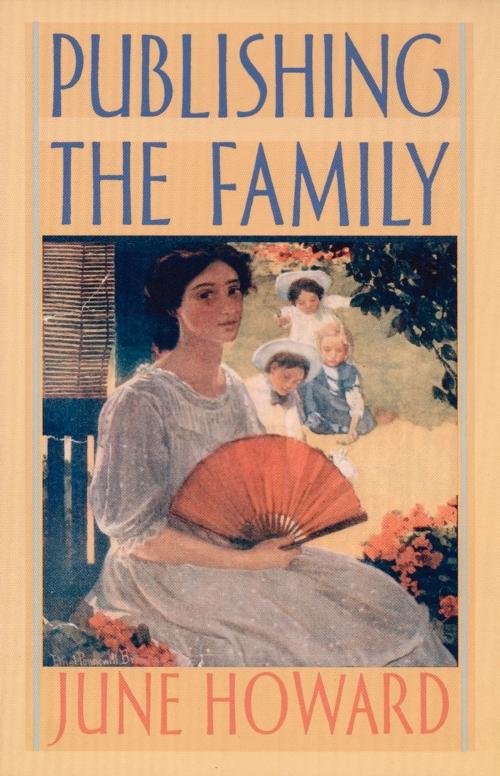| Author: | June Howard, Donald E. Pease | ISBN: | 9780822380412 |
| Publisher: | Duke University Press | Publication: | October 3, 2001 |
| Imprint: | Duke University Press Books | Language: | English |
| Author: | June Howard, Donald E. Pease |
| ISBN: | 9780822380412 |
| Publisher: | Duke University Press |
| Publication: | October 3, 2001 |
| Imprint: | Duke University Press Books |
| Language: | English |
In Publishing the Family June Howard turns a study of the collaborative novel The Whole Family into a lens through which to examine American literature and culture at the beginning of the twentieth century. Striving to do equal justice to historical particulars and the broad horizons of social change, Howard reconsiders such categories of analysis as authorship, genre, and periodization. In the process, she offers a new method for cultural studies and American studies at the beginning of the twenty-first century.
Publishing the Family describes the sources and controversial outcome of a fascinating literary experiment. Howard embeds the story of The Whole Family in the story of Harper & Brothers’ powerful and pervasive presence in American cultural life, treating the publisher, in effect, as an author.
Each chapter of Publishing the Family casts light on some aspect of life in the United States at a moment that arguably marked the beginning of our own era. Howard revises common views of the turn-of-the-century literary marketplace and discusses the perceived crisis in the family as well as the popular and expert discourses that emerged to remedy it. She also demonstrates how creative women like Bazar editor Elizabeth Jordan blended their own ideas about the “New Woman” with traditional values. Howard places these analyses in the framework of far-reaching historical changes, such as the transformation of the public meaning of emotion and “sentimentality.” Taken together, the chapters in Publishing the Family show how profoundly the modern mapping of social life relies on boundaries between family and business, culture and commerce, which The Whole Family and Publishing the Family constantly unsettle.
Publishing the Family will interest students and scholars of American history, literature, and culture, as well as those studying gender, sexuality, and the family.
In Publishing the Family June Howard turns a study of the collaborative novel The Whole Family into a lens through which to examine American literature and culture at the beginning of the twentieth century. Striving to do equal justice to historical particulars and the broad horizons of social change, Howard reconsiders such categories of analysis as authorship, genre, and periodization. In the process, she offers a new method for cultural studies and American studies at the beginning of the twenty-first century.
Publishing the Family describes the sources and controversial outcome of a fascinating literary experiment. Howard embeds the story of The Whole Family in the story of Harper & Brothers’ powerful and pervasive presence in American cultural life, treating the publisher, in effect, as an author.
Each chapter of Publishing the Family casts light on some aspect of life in the United States at a moment that arguably marked the beginning of our own era. Howard revises common views of the turn-of-the-century literary marketplace and discusses the perceived crisis in the family as well as the popular and expert discourses that emerged to remedy it. She also demonstrates how creative women like Bazar editor Elizabeth Jordan blended their own ideas about the “New Woman” with traditional values. Howard places these analyses in the framework of far-reaching historical changes, such as the transformation of the public meaning of emotion and “sentimentality.” Taken together, the chapters in Publishing the Family show how profoundly the modern mapping of social life relies on boundaries between family and business, culture and commerce, which The Whole Family and Publishing the Family constantly unsettle.
Publishing the Family will interest students and scholars of American history, literature, and culture, as well as those studying gender, sexuality, and the family.















